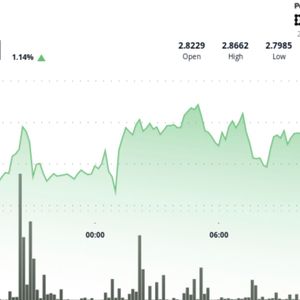The US Treasury will continue using emergency accounting measures to prevent breaching the debt ceiling until July 24, 2025. This will allow lawmakers more time to solve the problem before funds run dry. Treasury Secretary Scott Bessent urged Congress to act before the August recess , warning that court decisions on Trump-era tariffs could accelerate the projected X-date. Treasury extends emergency actions to avoid hitting the debt limit Bessent extended the period when the government can use “special accounting measures” to stay under the legal debt limit. The move allows the Treasury Department to temporarily shift funds between federal accounts and pause investments in certain government programs. Moreover, it enables the delay in issuing new debt as it extends the so-called “debt issuance suspension period” through July 24, 2025. Bessent sent a formal letter addressed to House Speaker Mike Johnson and other key congressional leaders before the previous suspension period’s expiration on June 27. This will help the government continue making payments without exceeding its borrowing authority . Bessent also repeated his warning in May and urged Congress to act quickly to raise or suspend the debt ceiling before lawmakers leave town for their scheduled August recess. He said these special measures do not solve the underlying problem, despite providing temporary relief. He also said the Treasury will shake investor confidence and damage the US government’s credit rating if it eventually exhausts its ability to pay the government’s bills on time. Bessent’s letter now puts more pressure on Republican leaders in both the House and Senate, who have been trying to finalize a massive tax and spending package but have failed due to internal disagreements over funding priorities. The Treasury may soon find itself without the tools to manage government payments. This could push the US closer to a financial crisis if these lawmakers don’t pass the package or delay action on the debt ceiling. The longer lawmakers delay, the higher the risk that markets will react with volatility and the harder it may become to calm public and investor fears. Tariff court battles could change the debt ceiling deadline Bessent told reporters that the outcome of legal battles surrounding tariffs imposed during the Trump administration could affect the “X-date”. This is because these tariffs have become a significant source of short-term federal revenue. They generated an unprecedented $23 billion in customs duties to boost the Treasury’s cash reserves when the federal government operates under strict borrowing limits and relies on temporary accounting measures to stay solvent. However, a recent US Court of International Trade ruling determined that some of Trump’s tariffs exceeded presidential authority and lacked a valid legal basis. The Treasury may be forced to halt the collection of certain tariffs altogether. Thus, the government could also be required to issue refunds for duties it has already collected. These court decisions can affect the government’s cash position and ability to delay a debt limit breach using internal workarounds. The ripple effects could be a loss of incoming revenue and an actual outflow of funds at a time when every dollar counts. A sudden drop in this revenue due to court-ordered changes could bring the X date closer by weeks and leave Congress with far less time to act than current projections suggest. Treasury signals it will scrap revenge tax as global tax talks advance Meanwhile, the US Treasury Department hints that it may soon abolish the controversial “revenge tax,” as the international tax talks led by the OECD finally appear to be making real headway. Michael Faulkender, the deputy Treasury secretary, said that a global agreement could make a US proposal called Section 899 , which is its provision against countries with a digital tax, unnecessary. Section 899 is an addition to the Trump administration and is widely viewed as retaliatory. It would levy tax penalties on companies and investors in countries the US believes discriminate against American technology giants, like Google, Apple, and Amazon, with digital services taxes. Several US allies, such as Canada, France, and the United Kingdom, have adopted some of these taxes. Cryptopolitan Academy: Coming Soon - A New Way to Earn Passive Income with DeFi in 2025. Learn More



















